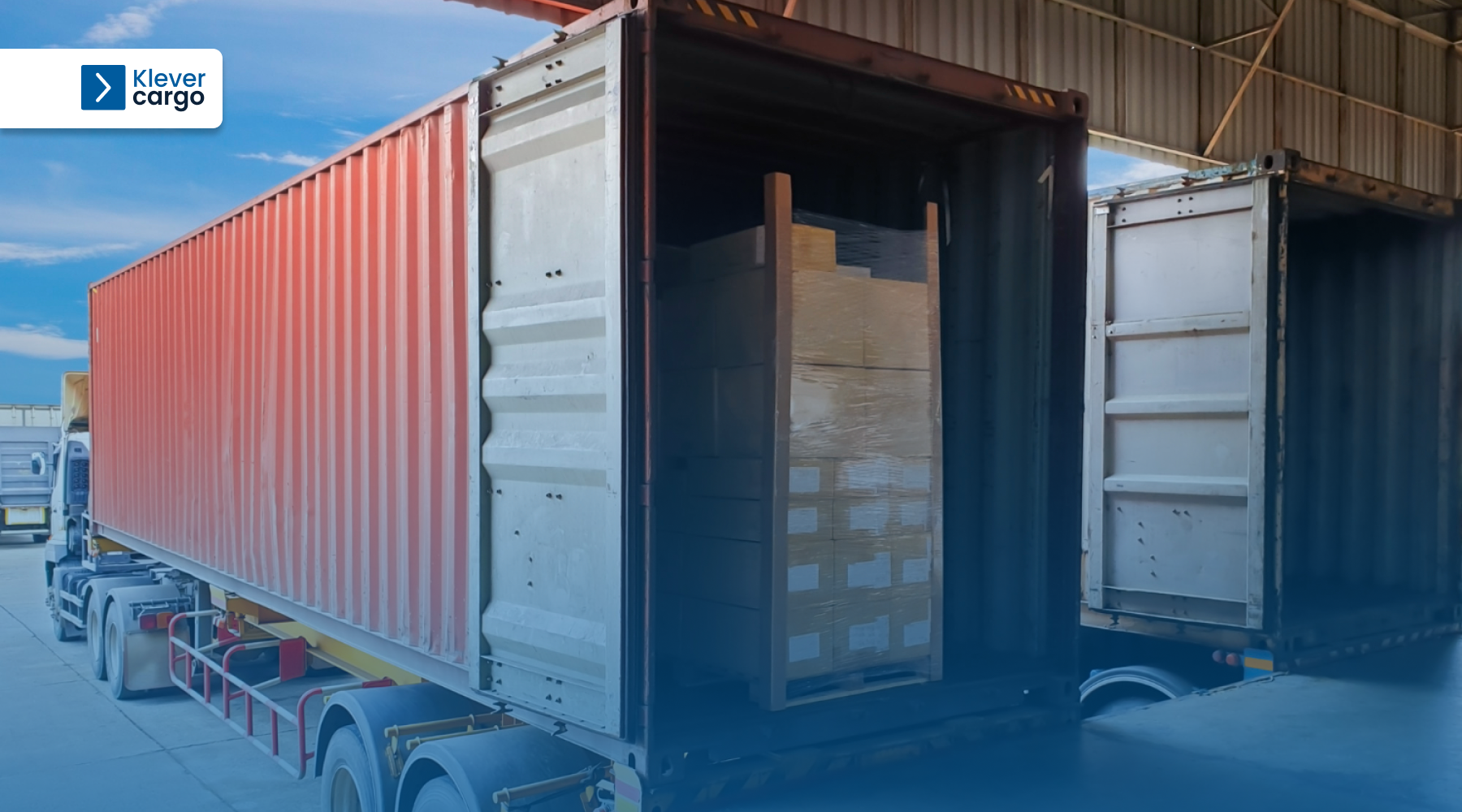Freight brokers are the participants in the transportation industry. They act as a mediator between shippers and carriers and facilitate effective communication between the two parties without taking ownership of the cargo. The freight broker’s primary responsibility is to ensure a smooth handoff and timely freight delivery.
Let’s clarify what they do and what their relationship with other links in the transportation chain looks like.
What does a freight broker do?

A freight broker assists cargo owners in locating secure and dependable shipping services.They facilitate organisation and oversee the transportation process to ensure cargo is delivered safely and undamaged.
Freight brokers utilise their expertise to optimise supply chain efficiency, improve delivery times, and prevent freight damage. They collaborate with a shipper, a carrier, and a dispatcher, providing convenience and benefits to all parties involved.
-
Freight brokers and shippers’ relationship
Many shippers opt to work with freight brokers as it simplifies the process of shipping their cargo.
By contacting just one person, the freight broker takes on the responsibility of finding and coordinating with a carrier to transport the cargo. This eliminates the need for the shipper to negotiate with carriers, plan routes, and track freight. Naturally, freight brokers charge a fee for the services they provide.
-
Freight brokers and carriers’ relationship
Freight brokers hire carriers to transport the shippers’ cargo. Their relationship is essential as they together make the deal and carry out the shipment’s movement. To have successful cooperation, they need to build mutual trust. Also, freight brokers are actually the ones that pay the carrier off.
-
Freight brokers and dispatchers’ relationship
The transportation industry has two distinct roles: the freight broker and the dispatcher. However, many people confuse the two.
The dispatcher is responsible for representing the carrier, while the freight broker is independent of both the shipper and the carrier, but works on behalf of the shipper.
Dispatchers primarily handle administrative tasks for the carrier, work closely with drivers and provide updates on the location of the cargo. Also, they can be responsible for finding available freights for transport.
Freight brokers charge the shipper and then pay the carrier, while dispatchers only have a contract with the carrier and don’t handle billing. Additionally, freight brokers require a license and insurance to operate, whereas dispatchers don’t.
What is the role of freight brokers

The role of a freight broker involves various responsibilities, but the most common ones include:
-
Being a middleman
The primary responsibility of a freight broker is to act as a mediator between shippers and carriers. They take on the entire process, including finding cargo and carriers, coordinating routes, communicating with carriers, and managing unexpected issues.
Essentially, a person or company needing freight broker services must only contact one who will handle the entire process.
-
Coordinating shipments
Another essential role of the freight broker is to coordinate shipments. That involves tracking and managing loads to have them arrive safely and on time.
-
Providing support
Freight brokers offer comprehensive assistance throughout the transportation process. They stay updated on the status of each shipment and are quick to address any issues that arise. Their primary responsibility is to resolve problems efficiently and with minimal delay.
-
Managing paperwork
In addition, freight brokers also handle the task of managing paperwork which can be overwhelming for shippers. They ensure carrier records are up-to-date and verify insurance, licensing, and regulatory compliance. Shippers can reduce their stress levels by delegating this responsibility to someone else.
The difference between freight brokers and freight forwarders

In the transportation industry, another important role is a freight forwarder, which is often mistaken for a freight broker.
Unlike brokers, freight forwarders have a more hands-on approach as they physically handle and transport the freight as part of their logistics operations. They also take care of packaging and transporting shipments to the same area. This physical possession of the freight is what sets them apart from brokers.
How do freight brokers earn money?

A freight broker makes a profit by charging the shipper more than they pay the carrier, typically earning 3 to 8% of each load.
Brokers are highly knowledgeable in the transportation industry and use innovative technologies to maximise efficiency and savings for their customers, who trust their expertise immensely.
Advantages of working with freight brokers

Several advantages make it appealing to work with freight brokers. They include:
-
Access to a network of carriers
Working with a freight broker provides several benefits, the first being their access to a vast network of carriers. This translates to quicker transportation services, as they have a firm grip on the shipping procedures.
Additionally, they are highly convenient to work with since they can access a range of carriers and select the best ones for transporting various goods. For instance, liquid or refrigerated freight requires different transportation methods than dry freight.
-
Expertise
Freight brokers’ knowledge and experience can help reduce delivery time, increase safety, and lower costs. They can make reasonable estimates and anticipate potential issues, allowing them to prevent or efficiently handle any problems that may arise.
-
The reduced administrative burden
Moreover, there is reduced administrative burden freight brokers help with. They keep carrier records up to date. Also, they check licenses, insurance and regulatory compliance. Additionally, they can also handle paperwork. They know the necessary documents and paperwork to prevent costly mistakes.
-
Risk management
Involving a professional third party reduces the risks associated with transportation. It’s a complex process involving many steps. So mistakes are bound to happen if we put an inexperienced person in charge of many shipments.
Disadvantages of working with freight brokers

Working with freight brokers also comes with certain disadvantages:
-
Additional costs
Working with a freight broker often comes with some additional costs. Besides paying the broker’s commission, there can also be some unexpected fees. You can read about specific cases requiring other expenses in the contract. They are usually written in fine print; we rarely focus on that.
The best way to ensure these additional fees are minimal is to communicate openly with the broker. As brokers work on commission and mediators’ fees can be high, these costs fall onto the shipper.
-
Communication issues
Another common disadvantage when working with a freight broker is various communication issues. After talking with shippers, freight brokers communicate with carriers and other involved parties about the same thing. This type of communication chain can be complicated, and often something gets lost in translation.
Also, freight brokers have their network of carriers they use as well as technology. If there are some issues with their technology, they can’t do their job as quickly. That reflects on the freight being transported.
-
Less control
Moreover, we have less control over the process when working with a freight broker. You must rely on the broker to do the job as efficiently as possible. Also, you must trust them to ensure the shipping process goes smoothly.
However, if you want to be in control of the process more, consider using a platform such as Klever Cargo. It’s a platform that connects participants in the transportation industry – those who offer cargo for transport and those who need cargo to fill their trucks. That way, you don’t have to pay a percentage to the broker, and you can also avoid all these disadvantages.
-
Liability concerns
Everybody tries to protect themselves in cases of accidents and mishaps. If working with a freight broker, you must know precisely what you’re signing in contracts. Additionally, you must understand the insurance policy well. Also, you need to know who is liable for what potential scenarios during the shipping process.
-
Quality concerns
Quality control plays a vital role in the freight transportation process. You must be sure that people handling freight are reliable and trustworthy. Otherwise, your freight can get damaged, lost or arrive late. When choosing a broker to work with, reading reviews is essential. Please select the best one based on people’s experience with them. Having too many hands on the freight makes it hard to check the quality.
With or without the middleman – you chose

Freight brokers have their place in the transportation chain and work closely with shippers. Registering on the Klever Cargo platform lets them find plenty of available vehicles ready to transport their customers’ shipments. Or shippers can choose to offer transportation without working and paying the go-between.
For more details, watch the full platform tutorial.


